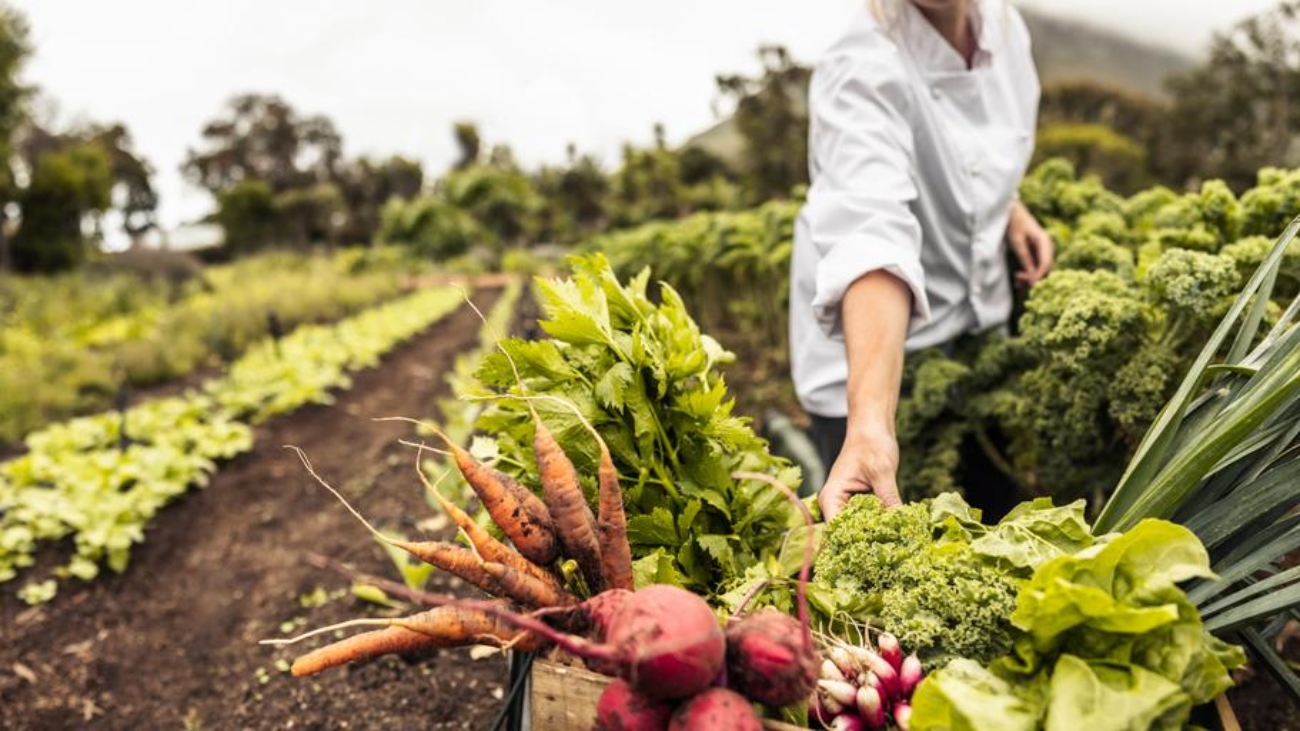In an era of increasing environmental awareness and changing consumer preferences, the concept of sustainable food has gained significant momentum. “From Farm to Fork” encapsulates the journey of food from its origins on the farm to its consumption on our plates, while emphasizing the principles of sustainability that underpin this process. This article delves into the key components of sustainable food systems and explores the positive impact they have on the environment, society, and our overall well-being.
Farm to Fork and Sustainable Agriculture for Nurturing the Earth
At the heart of sustainable food lies the practice of sustainable agriculture. Sustainable farmers prioritize soil health, biodiversity, and natural resource conservation. They employ methods like crop rotation, agroforestry, and organic farming to minimize the use of chemical inputs and reduce the ecological footprint of agriculture. By nurturing the land and preserving its fertility, sustainable farmers ensure the long-term viability of their farms while safeguarding the planet for future generations.
Local and Seasonal Produce: Farm to Fork & Reducing Food Miles
A cornerstone of sustainable food systems is the emphasis on consuming local and seasonal produce. By opting for locally sourced food, consumers reduce the carbon footprint associated with transporting food over long distances. Additionally, consuming seasonal produce promotes biodiversity and supports local economies, strengthening the connection between farmers and their communities.
Regenerative Farming or Farm to Fork: Healing the Land
Regenerative farming goes beyond sustainability, focusing on actively improving the health of ecosystems and biodiversity. This approach aims to restore degraded lands, sequester carbon in the soil, and enhance ecosystem resilience. By employing regenerative practices, farmers play a crucial role in mitigating climate change and fostering healthy, thriving environments.
Food Waste Reduction: Respecting the Harvest from Farm to Fork
A significant challenge in our food system is food waste. Sustainable food practices emphasize reducing food waste at all stages, from production and distribution to consumption. By respecting the harvest and utilizing surplus food, we can conserve valuable resources and minimize the environmental impact of wasted food.
Responsible Fishing and Aquaculture: Preserving Ocean Ecosystems
Sustainable food systems also extend to the seafood industry. Responsible fishing practices, such as sustainable fishing quotas and marine conservation efforts, help protect ocean ecosystems and marine species. Similarly, sustainable aquaculture ensures that farmed seafood is raised with minimal environmental impact and consideration for animal welfare.
Transparent Supply Chains: Empowering Consumers
Transparency in the food supply chain is vital for consumers to make informed choices. Sustainable food systems prioritize traceability and provide consumers with information about the origins of their food, production methods, and environmental and social impacts. This transparency empowers consumers to support food producers and businesses aligned with their values.
Social Equity and Fair Trade: Ensuring a Just Food System
Sustainable food systems uphold principles of social equity and fair trade. They prioritize fair wages, safe working conditions, and equitable opportunities for farmers and food workers. By supporting fair trade practices, consumers contribute to building a more just and inclusive food system that respects the rights and dignity of all those involved in food production.
Health and Nutrition: Nourishing People
Sustainable food systems promote health and nutrition by prioritizing nutrient-rich, minimally processed foods. Emphasizing whole grains, fruits, vegetables, and sustainably sourced proteins ensures that our food choices nourish our bodies and contribute to overall well-being.
Community Engagement: Fostering Connections
Sustainable food systems foster community engagement and collaboration. Farmers’ markets, community-supported agriculture (CSA), and local food initiatives bring producers and consumers together, creating a sense of community and shared responsibility for the food we eat.
A Global Movement: Changing the Food Paradigm
The shift towards sustainable food is a global movement that involves individuals, businesses, governments, and organizations. From farm to fork, every step in the food system can contribute to a more sustainable future. By embracing sustainable food practices, we collectively work towards a healthier planet, a more resilient food system, and a brighter future for generations to come.
Conclusion:
“From Farm to Fork” represents not only the journey of food but also the transformation of our relationship with what we eat. Sustainable food systems prioritize environmental stewardship, social equity, and public health, redefining how we produce, distribute, and consume food. In the grand narrative of sustainable food, every choice matters. From farm to fork, our journey towards eco-conscious dining continues, fostering a greener, healthier, and more sustainable future with FinBiz Tech. Explore and savor it.



